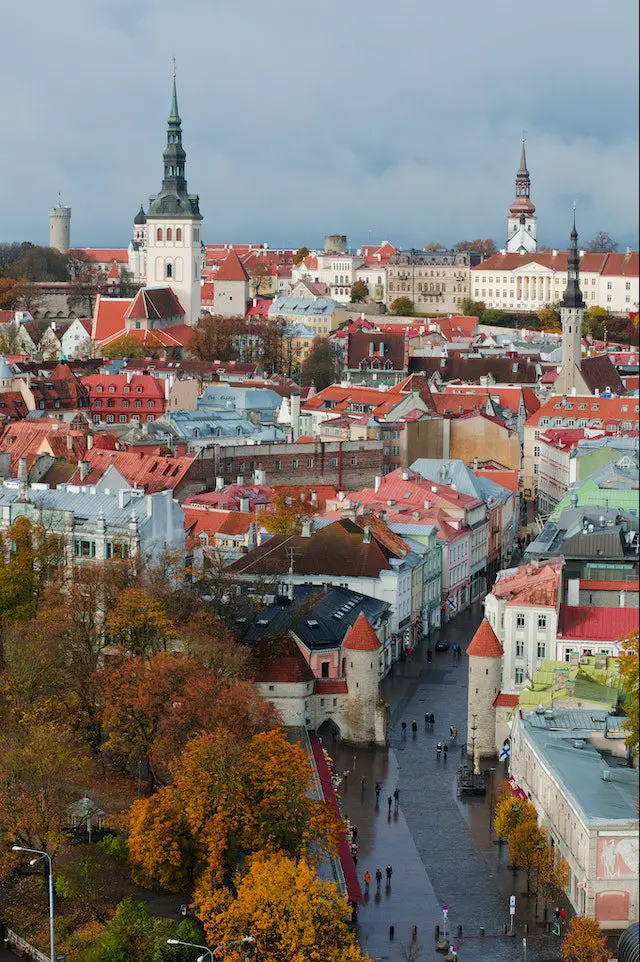Scholarship details
The University of Tartu, also known as Tartu Ülikool in Estonian, is one of the oldest and most prestigious universities in Estonia and the Baltic region. Here is some information about the university, its location, and its history:
Location: The University of Tartu is located in the city of Tartu, which is the second-largest city in Estonia and is often referred to as the intellectual and cultural capital of the country. Tartu is situated in southern Estonia, approximately 160 kilometers (about 100 miles) southeast of the capital city, Tallinn.
History:
- Founding: The University of Tartu was founded on December 1, 1632, by King Gustavus Adolphus of Sweden, making it one of the oldest universities in Northern Europe. At its inception, the university was known as the Academia Gustaviana and was established during the Swedish era of Estonia.
- Early Years: In its early years, the university played a significant role in the development of education, science, and culture in the region. It attracted scholars and students from various parts of Europe.
- Imperial Russia: The university went through several historical changes, including a period of Russian rule when it was known as the Imperial University of Dorpat (Dorpat being the German name for Tartu).
- Republic of Estonia: After the end of World War I and the Estonian War of Independence, Tartu became part of the newly independent Republic of Estonia. The university regained its Estonian identity and the name University of Tartu.
- Soviet Era: During the Soviet era, the university continued to operate under Soviet control. However, it maintained its academic excellence and contributed to the cultural and intellectual life of Estonia.
- Post-Independence: Since Estonia regained its independence from the Soviet Union in 1991, the University of Tartu has continued to thrive and expand its academic programs and international collaborations.
Academic Excellence: The University of Tartu is renowned for its academic excellence and is consistently ranked as one of the top universities in the Baltic region and Eastern Europe. It offers a wide range of undergraduate, postgraduate, and doctoral programs across various fields, including humanities, social sciences, natural sciences, medicine, and technology.
The university’s historical significance, commitment to research and education, and its picturesque campus in the heart of Tartu make it a highly respected institution in Estonia and beyond. It has a strong international presence and attracts students and researchers from around the world.
The University of Tartu continues to be a hub for education, research, and cultural activities, contributing to the intellectual and cultural vibrancy of Estonia.
What Eligibility Requirements To Know About
There are a set of serious eligibility requirements for this scholarship opportunity.
- Students who wish to apply for this scholarship need to be pre-registered at the University of Tartu. If a student is not already pre-registered then they will be denied the chance to apply.
The University of Tartu is a well-known university in Estonia, and its eligibility requirements may vary depending on the specific program or degree you are interested in. However, I can provide you with some general guidelines on the typical eligibility requirements for undergraduate and postgraduate programs:
1. Undergraduate Programs:
- Secondary Education: You should have completed a recognized secondary education program that is equivalent to the Estonian secondary education system. This typically means having a high school diploma or its equivalent.
- Language Proficiency: Since many programs at the University of Tartu are taught in English, you may be required to demonstrate proficiency in the English language by providing scores from standardized English language tests like TOEFL or IELTS. Some programs may have specific language requirements, so be sure to check the program’s webpage for details.
- Program-Specific Requirements: Some programs may have additional requirements, such as prerequisite courses or specific entrance exams. These requirements vary by program, so you should check the program’s webpage for details.
2. Postgraduate (Master’s) Programs:
- Bachelor’s Degree: You typically need a bachelor’s degree or its equivalent from a recognized institution. The specific academic requirements may vary depending on the program you are applying to.
- Language Proficiency: If your chosen program is taught in English, you may need to provide proof of your English language proficiency through standardized tests like TOEFL or IELTS. Again, check the program’s requirements for specific details.
- Program-Specific Requirements: Different master’s programs may have specific prerequisites or additional admission requirements, such as a relevant undergraduate degree, letters of recommendation, a statement of purpose, or an interview.
Here are the Steps to Applying for this Scholarship
It may be required of students to have a bachelor’s degree beforehand, that is if only they have graduated with a Master’s degree.
What are the Award Options
The information is available to help students with their monthly stipend for the awarded individuals. This stipend can go towards the cover costs of the short-term program or towards living expenses.

Source: Pexels.com
How Does Obtaining a Student Visa for this Country Work
First off the student visa duration to stay in Estonia is for one full year.
Steps to Acquire a Student Visa:
- Contact the nearest embassy/consulate of Estonia in your home country
- Send in and pay the fee payment, with the receipt, along with any document that is requested from the embassy to send in
- There will be an appointment set up for you by the embassy
- Wait patiently to receive a response from the embassy
- You will receive an answer via email, call, or mail
- From there you can either go pick up your visa or have it mailed to you
Each step could be different depending on the country the student has chosen to study in, be sure to check the embassy website.
Getting a student visa to study in Estonia involves several steps and requirements. Estonia is part of the European Union (EU) and the Schengen Area, which simplifies the visa process for many international students.
Tuition Fees and Financial Sufficiency:
- You should demonstrate that you have sufficient financial means to cover your tuition fees and living expenses in Estonia. This typically involves providing bank statements or scholarship confirmation letters.
Health Insurance:
- You are required to have health insurance coverage for the duration of your studies in Estonia. You can either purchase private health insurance or obtain European Health Insurance (EHIC) if you are an EU/EEA citizen.
Visa Application:
- Once you have received an acceptance letter from your educational institution and have gathered the necessary financial and health insurance documentation, you can start the visa application process.
Visa Types:
- Estonia offers two types of student visas:
- Short-stay (Type C) visa: This is suitable for programs lasting less than 90 days, such as language courses or short-term exchange programs.
- Long-stay (Type D) visa or residence permit: This is for programs that exceed 90 days, such as bachelor’s, master’s, or doctoral studies.
Required Documents for Visa Application:
- The exact documents you need may vary depending on your nationality and the specific Estonian consulate or embassy where you apply. However, common required documents include:
- Completed visa application form
- Passport-sized photos
- Valid passport
- Letter of acceptance from the Estonian educational institution
- Proof of sufficient funds
- Proof of health insurance
- Criminal record certificate (if required)
- Visa fee payment receipt
Visa Interview:
- Some applicants may be required to attend a visa interview at the Estonian embassy or consulate in their home country.
Visa Processing Time:
- Visa processing times can vary, so it’s advisable to apply well in advance of your intended travel date. Processing times can range from a few weeks to a few months.
Residence Permit:
- For programs exceeding 90 days, you may initially receive a temporary residence permit, which you will need to collect from the Estonian Police and Border Guard Board after your arrival in Estonia. Be sure to follow the instructions provided by your educational institution and the Estonian authorities.
Registration in Estonia: – After your arrival in Estonia, you must register your residence with the local authorities.
It’s essential to check the specific requirements and procedures with the Estonian embassy or consulate in your home country and with your chosen educational institution. Additionally, make sure to start the visa application process well in advance to allow for any potential delays and ensure a smooth transition to studying in Estonia.
Is There a Deadline, and is the Scholarship Available Annually or Not
The deadline is registered for the Spring of 2024 the program is on-site at the university and from July 31 – August 10, 2024.
More scholarships to look at are the $7,000 Go Global MBA Scholarships for International Students in 2024 or the Fully Funded Aga Khan Foundation 2023 Global Mental Health Postdoctoral Fellowship.
All applicants should consult the contact webpage in the contact section of this page if a question has not been answered. Beforehand, check the university’s FAQs page to see if anything can be answered immediately.
All students should check with the university website about any delays or changes to the open submission window or deadline time frame. This is the best way to see if anything needs to be reviewed or changed before submitting their application. Anyone can sign up to receive a university website newsletter to stay updated on the latest information.
Any student unsure about the rules and guidelines meant to be followed by the recipient should consult the website link provided. Anyone looking for more information that is not found on the website should contact the email address.
We also suggest that all applicants read through the information guideline page available through the original scholarship link. This way, the individual can navigate the website correctly and identify the real scholarship online application. So far there has been no mention of any delays or cancellations for this opportunity.








